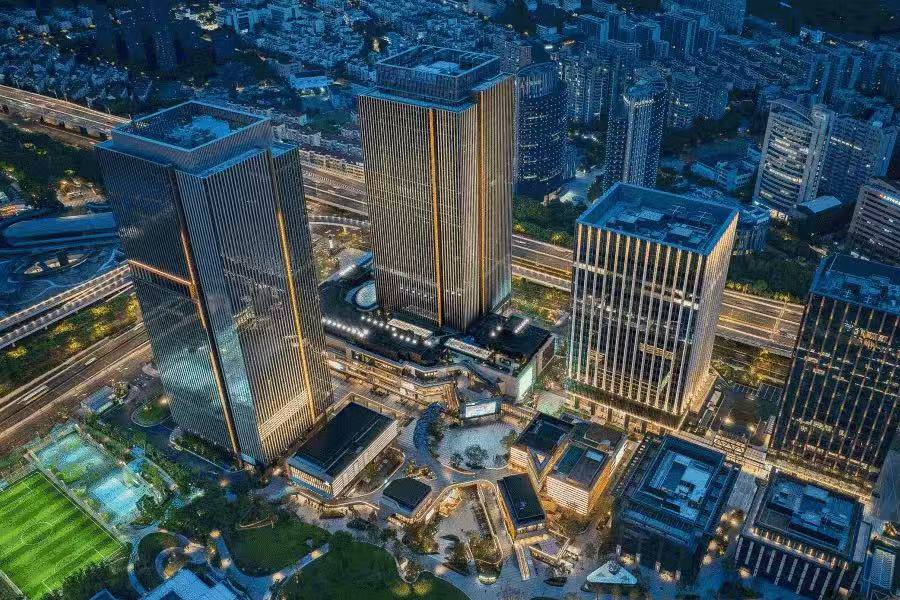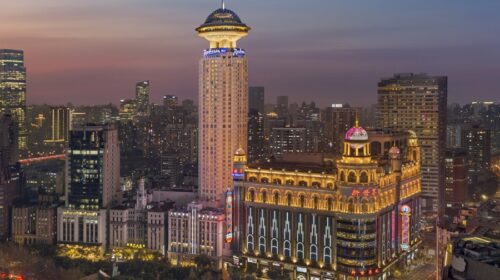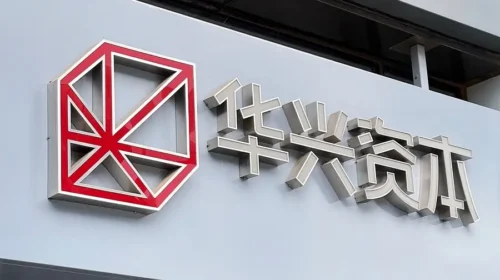The state steps in to shield China Vanke from debt crunch

Default risks have receded at the embattled property developer after a state-backed support effort, but business recovery is still a long way off
Key Takeaways:
- The head of the firm’s biggest shareholder, state-owned Shenzhen Metro, will take the Vanke helm in a boardroom shake-up
- The real estate developer warned of a net loss of up to 45 billion yuan for 2024 after making a 12.2 billion yuan profit a year earlier
By Lee Shih Ta
Just before the New Year holidays, property developer China Vanke Co. Ltd. (2202.HK; 000002.SZ) dropped a series of bombshells, as if keen to get the fireworks out of the way and make a fresh start in the Year of the Snake.
First up was a profit warning. The real estate giant forecast it was facing a record loss of 45 billion yuan ($6.17 billion) for 2024 on disappointing sales, in a sharp reversal from a profit of 12.2 billion yuan a year earlier.
Next came another shocker. A boardroom shake-up was announced in which the chairman and CEO were both stepping down and a new leader was taking control, crossing over from the state-owned company that is Vanke’s biggest shareholder.
Just 10 minutes later, the body in charge of state assets in Shenzhen, where Vanke is headquartered, rattled off a statement of support, endorsing what could essentially amount to a state takeover of the troubled real estate firm.
The dramatic intervention came as Vanke was facing a crunch time in its debt repayment cycle. The company’s ability to service its debts was shaping up to be a critical test this year for China’s crisis-hit real estate sector.
The rapid-fire announcements were a lot for investors to process, just as the country was winding down for the Lunar New Year festival. But the state’s financial firepower has clearly reduced the default risks for Vanke, in what some analysts called a de-facto bailout of a firm that was deemed “too big to fail”.
Describing the management changes, Vanke said Yu Liang was resigning as chairman but would remain as a director and executive vice president. CEO Zhu Jiusheng was giving up all his positions for “health reasons”. Meanwhile, the chairmanship would pass to Xin Jie, the head of state-owned Shenzhen Metro Group, which owns more than a quarter of Vanke shares.
The subway operator invested more than 66.4 billion yuan in Vanke in 2017, becoming the firm’s largest shareholder with a 27.18% stake. Up until now, it had stayed out of Vanke’s business, leaving managers in charge. But with creditors circling and the developer’s finances deteriorating, the state authorities have asserted control, via Shenzhen Metro and the powerful local body that manages government assets.
The head of the Shenzhen Assets Supervision and Administration Commission (SASAC) said ample resources could be called upon to help Vanke move forward in a “market-oriented and law-based” manner, citing assets of more than 5 trillion yuan and annual revenues of more than 1 trillion yuan.
With a new team installed, media narratives can blame Vanke’s struggles at least in part on the decisions of outgoing managers.
Both in it together
But even with ultra-deep pockets, the task will be challenging.
A mountain of debt is coming due in 2025 that had put Vanke on track for potential default, with the risk of ripple effects through China’s struggling real estate market. The developer’s interest-bearing liabilities totaled 327.61 billion yuan at the end of last September, while cash in hand was just 79.7 billion yuan.
When they first got together, Shenzhen Metro and Vanke enjoyed a honeymoon period, sweetened by profits from real estate assets along transit routes. In 2019, just over half of the metro firm’s revenues of 20.99 billion yuan came from real estate and property investment. Vanke alone contributed a whopping 11.2 billion yuan.
Real estate goes hand in hand with mass transit, as new transport links boost the value of nearby properties and businesses.
The first phase of the Shenzhen Metro helped to lift the value of residential buildings by 19.9%, shopping malls by 14.7% and office buildings by 11.5% within 500 square meters of the new transport system. The value boost is three times the construction cost, according to the company. Meanwhile, every kilometer of metro can add 1.56 billion yuan to the value of the surrounding properties.
However, falling prices and excess supply have triggered a downturn in China’s real estate market, taking the gloss off the symbiotic business model. The once highly profitable Shenzhen Metro has also landed in the red, logging a loss of 8.07 billion yuan in the first three quarters of 2024, its biggest since 2015. The close ties between the Shenzhen Metro and Vanke can exert downward as well as upward pressure on earnings.
Too big to fail?
Vanke has long been a property bellwether as China’s first real estate company to go public in 1991. A default could deal another crushing blow to confidence after previous crises at developers Evergrande (3333.HK) and Country Garden (2007.HK).
A Bloomberg report concluded that a state lifeline had to be thrown because Vanke’s status in the industry made it “too big to fail”.
Elsewhere, analysts described the move as a landmark intervention by the government in the property sector.
“China Vanke is the first (Chinese) real estate company to get the government directly involved, which is almost tantamount to a bailout,” said Raymond Cheng, head of China and Hong Kong research at Galaxy Securities. Vanke’s state-owned backer, Shenzhen Metro, will eventually become the controlling shareholder, he predicted.
Vanke’s share price jumped nearly 14% when the news came out on January 28, the last trading day of the Year of the Dragon, but the stock closed with a gain of just 2.12%.
Investors are still braced for the share price to fall in the long run. After all, the official endorsement spoke of “market-oriented” assistance, rather than unconditional support. Vanke’s fate will depend on many variables, but the authorities are now stepping up with a protective shield, which may bolster confidence in the market as a whole.
To subscribe to Bamboo Works free weekly newsletter, click here






